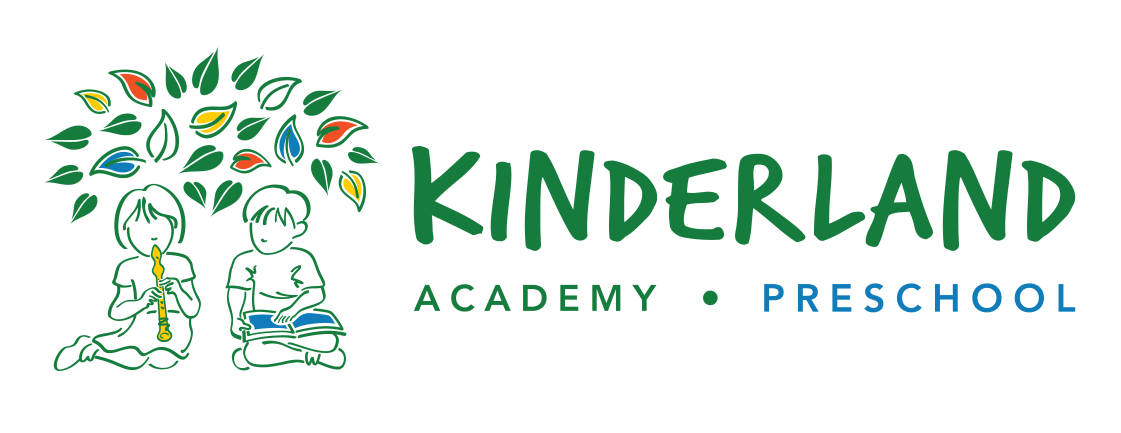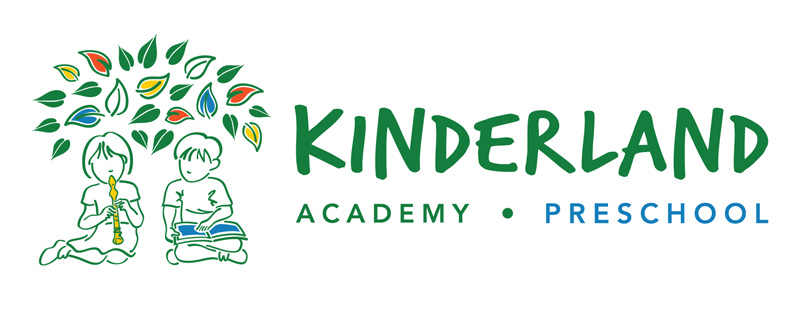Hailing from the prestigious Wheelock College (USA), Mr Jeff Winokur was invited by Kinderland to share more on the Western approach to STEM learning. Mr Winokur is a nationally recognized expert in designing and delivering science professional development. He is a consultant for early childhood programs throughout New England and provides professional development for teacher. This sharing session is part of Kinderland’s commitment to continuously enriching our teachers and updating curriculum based on best practices from the East married with the West.
Children’s thinking is surprisingly sophisticated. Mr Winokur calls for teachers to take on a more collaborative approach to teaching where children are encouraged to discuss their thinking. He shared that children must learn science by doing science and they have the capability to understand scientific concepts at a young age.
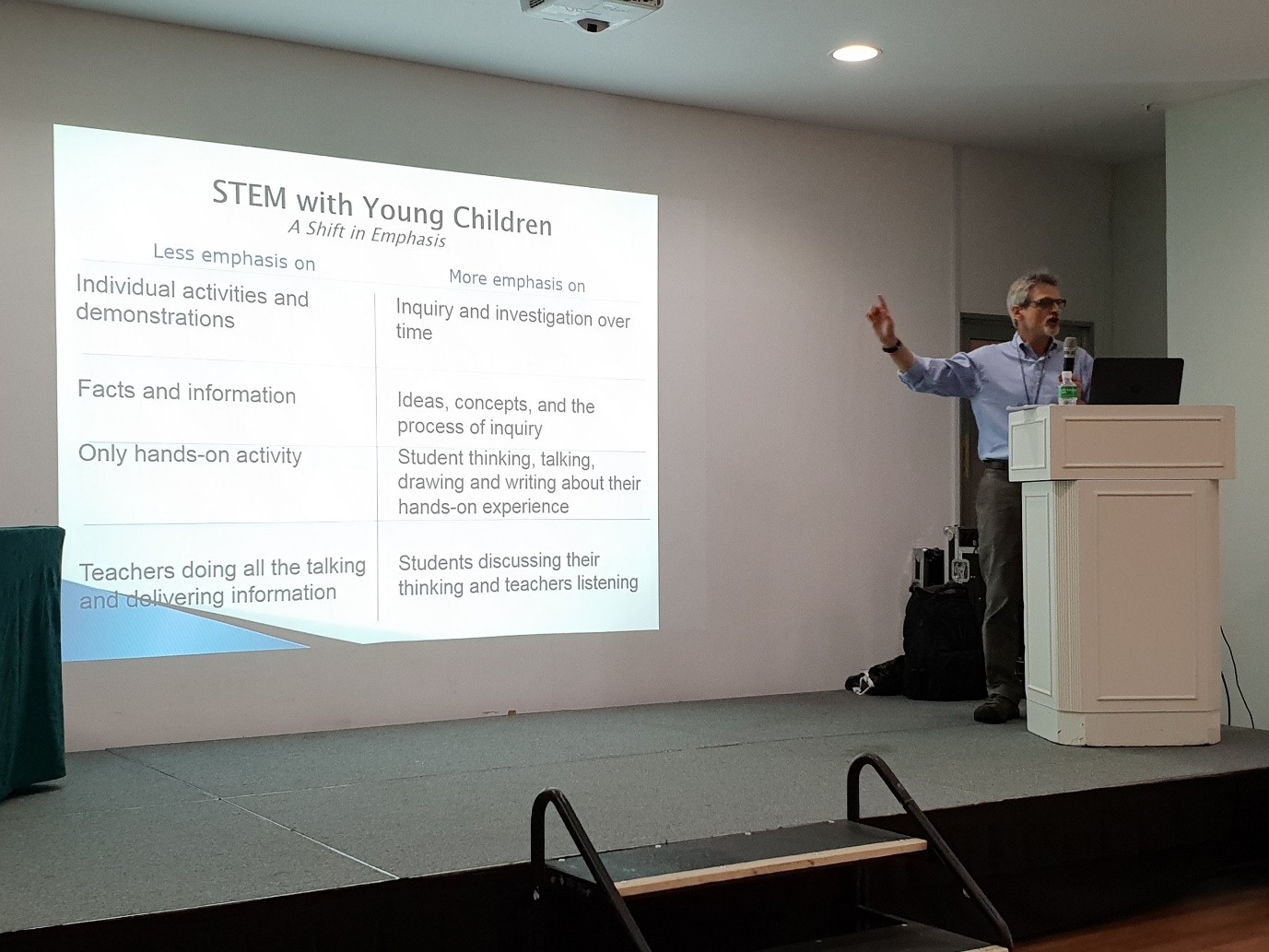
Mr Winokur in action
Young children need multiple and varied opportunities to engage in science exploration and discovery. They develop science skills and knowledge over a sustained period and not with just one interaction.
He also recommended that children are taught to record their learnings to show for experiences through drawings or written observations.
The KWL Approach: What do you KNOW, what do you WANT to learn, what did you LEARN
Finding out what children already know is important. Each child can note their observations in whichever way works for them – “The water droplet moves like kitty whiskers (arc shaped)”
Criteria for subject matter:
- Draws from child’s experience (relatable)
- Developmentally appropriate
- Can be explored directly
- Open to deep and on-going exploration
- Interesting, engaging and fun
- Builds important science concepts, reasoning skills, science practices
Some examples of concepts recommended to teach children include physical properties of water, light and shadows, observation of earth materials and phenomena in the sky.
In the later half of the session with Mr Winokur, teachers were grouped into teams and each group taken to a station. The groups were rotated throughout the afternoon such that they could experience each station. By having a hands-on experience of how to learn certain science concepts, they will be better able to bring this into the classroom for the benefit of our little ones.
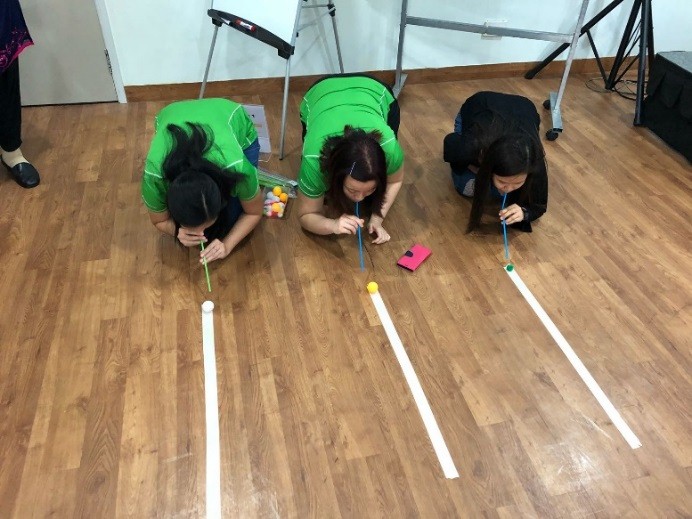
Runway Races: Air can move things
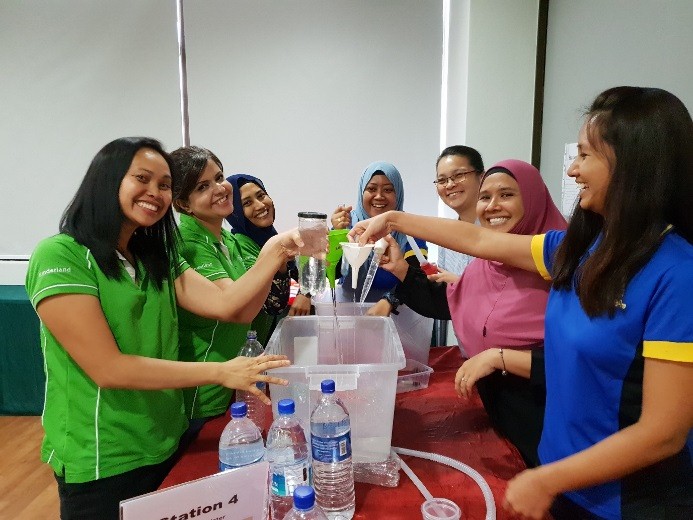
Exploring water: Direction water flows
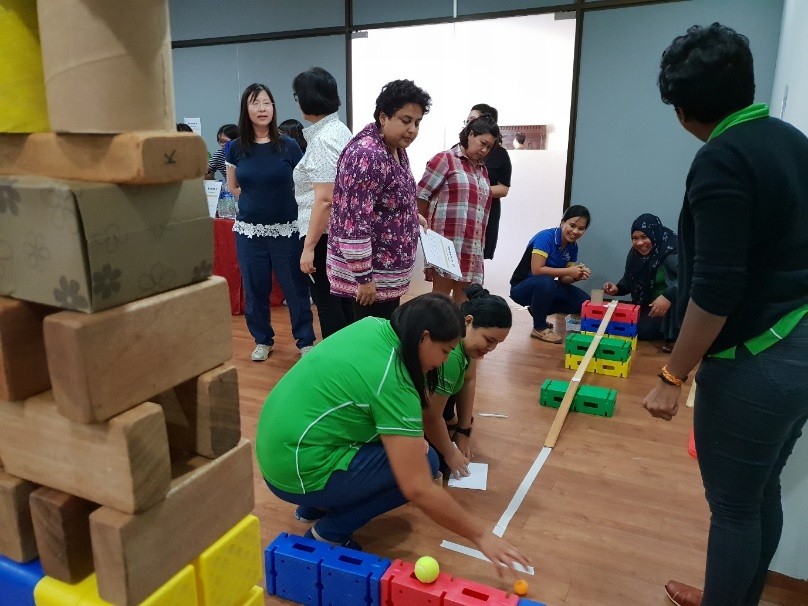
Ramps and balls: Forces (gravity, friction), motion, properties of materials
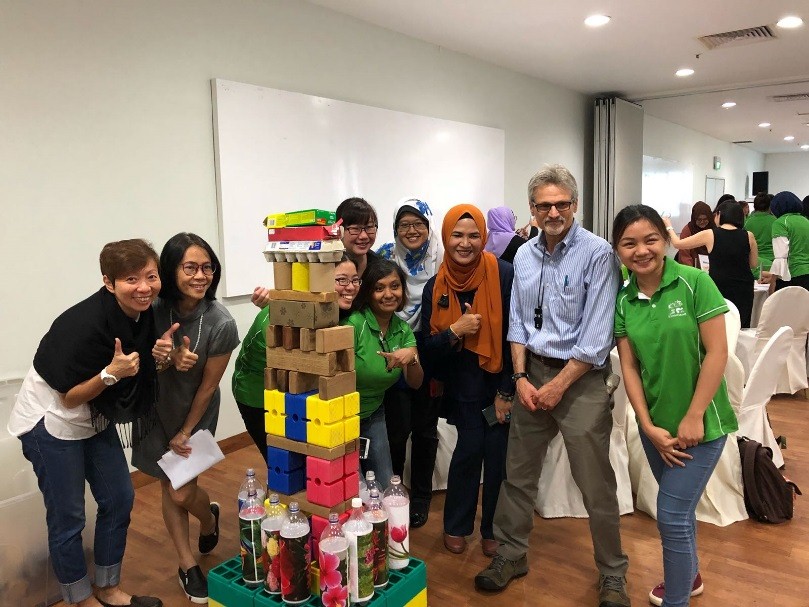
Mr Winokur (second from right) and the teachers having a great time!
